Financial Check-In During Covid-19 (and beyond)
I have been practicing social distancing before it became a phrase. During this time, I have looked through my own financial portfolio and made necessary adjustments to reduce my expenses and review my allocations to make sure money work for me even when I’m not working. These are some of my insights, and I hope they can help you better prepare both your current and future financial portfolios, while staying at home as a socially responsible person.
1. Think about your relationship with money.
It’s a good time for you to sit down quietly to re-examine your relationship with your finances. Some areas you might want to reflect on: are you happy with your financial situation so far? What have you been doing well and what can be improved? If you continue doing what you have been doing, will you achieve your financial goals? Or do you even have financial goals?
2. Do you have an emergency fund?
An emergency fund is a sum of money set aside for unexpected events that result in financial emergencies. These events are generally not covered by insurance, like if you lose your job in the current Covid-19 situation because businesses are affected. You should at least have 3 to 6 months of emergency funds readily available to create the buffer for you to pay for day to day living expenses. However, if you realize that you do not have enough emergency fund right now, what you can do immediately is to reduce your expenses, and begin saving once you can.
3. Identify your spending pattern.
In order to reduce your expenses, you have to understand your spending pattern. One way is to look at your credit card spending for the past one year. Are there any spending patterns, once identified, that can be improved upon? You may also want to look at your recurring bills to see if they are still relevant at this point in time. Find the areas that you spend the most money on, perhaps a hobby or self-pampering activity, and allocate a monthly budget to it and ensure you do not cross that limit.
4. Do you have a diversified portfolio?
I know some of you love the company you work for so much that you also bought a lot of its shares. However, what will happen if one day, due to some unforseen and unpreventable circumstances, your company doesn’t do as well, the share price tumbles and you lose your job at the same time? Wouldn’t it be better to manage such risk earlier, by diversifying your portfolio? Also, a lot of Asians love properties and people can put almost all their money in their residential and investment properties. During market downturns, some people are forced to sell their assets in order to get cash, especially those taking loans. When supply is higher than demand, prices go down. If these people lose their jobs in a recession, they could easily fall into foreclosure. Hence, it might be better to allocate your investments across asset classes, and also diversify into different geographical regions or sectors within each asset class.
5. Have you provided enough financial security for your family?
With the current situation, you may start to wonder, if something happens to you, what would happen to your family? Who will help you pay for your bills when you lose your income? Do you expect your family members to peg people for donations? The main reason we often emphasize the importance of financial protection is when you take care of the downside, the upside will take care of itself. Without proper coverage for the potential loss of income, you will have no choice but to use all your savings and cash out your investments in times of need, or worse, have to borrow from people you were supposed to take care of. If you have not done any planning yet, it’s time for you to sort out your finances and start with what I have discussed in point 3. If you have done some planning, make sure you keep your account information, insurance policies and will at one place so that your family members will know where to find them in time of need.
6. Be cautious about taking loans to invest
Some people asked me if they should take loans to do some investments so that they can buy more assets than what their available cash can afford. I would advise you to be cautious. Many small and medium enterprises are going to be affected during the current situation. Many of them can only survive for 2-3 months because they still need to pay for overheads and repay business loans. When people need cash, the first thing people do is to sell their assets such as properties and stocks etc. If you take loans now to do investment, you might have difficulties making payments when businesses start to cut jobs and market goes down further. As a result, you might need to sell your investment regardless of the market price to pay back the loans and you can potentially lose a lot of money. While there are people who have made money by taking loans to invest, they are taking a higher risk, and you need to be aware of this.
Important: The information and opinions in this article are for general information purposes only. They should not be relied on as professional financial advice. Readers should seek unbiased financial advice that is customised to their specific financial objectives, situations & needs. This advertisement or publication has not been reviewed by the Monetary Authority of Singapore.

Published By:
Sissi Goh Yan Xi
I am Sissi Goh, the legacy planner in Singapore, and the award-winning author of the book ‘Wealth Management Isn’t Just for The Rich’. I advise clients across the whole spectrum of wealth management and I specialise in family inheritance and succession planning.
I have experience in private wealth and hedge fund consulting. I am a Chartered Financial Consultant (ChFC), Chartered Life Underwriter (CLU), Registered Trust and Estate Practitioner (TEP), Certified Legacy Planning Associate (CLPA), Certified High Net Worth Advisor and Certified Family Office Advisor. I am a full member of Society of Trust and Estate Practitioners (STEP) and the youngest founding member of Asia Estate Planning Association (AEPA).
I graduated with a Master of Public Administration in International Finance Policy and Management, from Columbia University, in the City of New York. My philosophy is that an individual’s real wealth encompasses both financial and psychological aspects and that everyone can enrich their lives by adopting some of the principles of the wealthy.

CONTACT US
- 150 Beach Road #12-01/08, Gateway West Singapore 189720
- +65 62221889
- +65 62221019
- feedback@fa.com.sg
